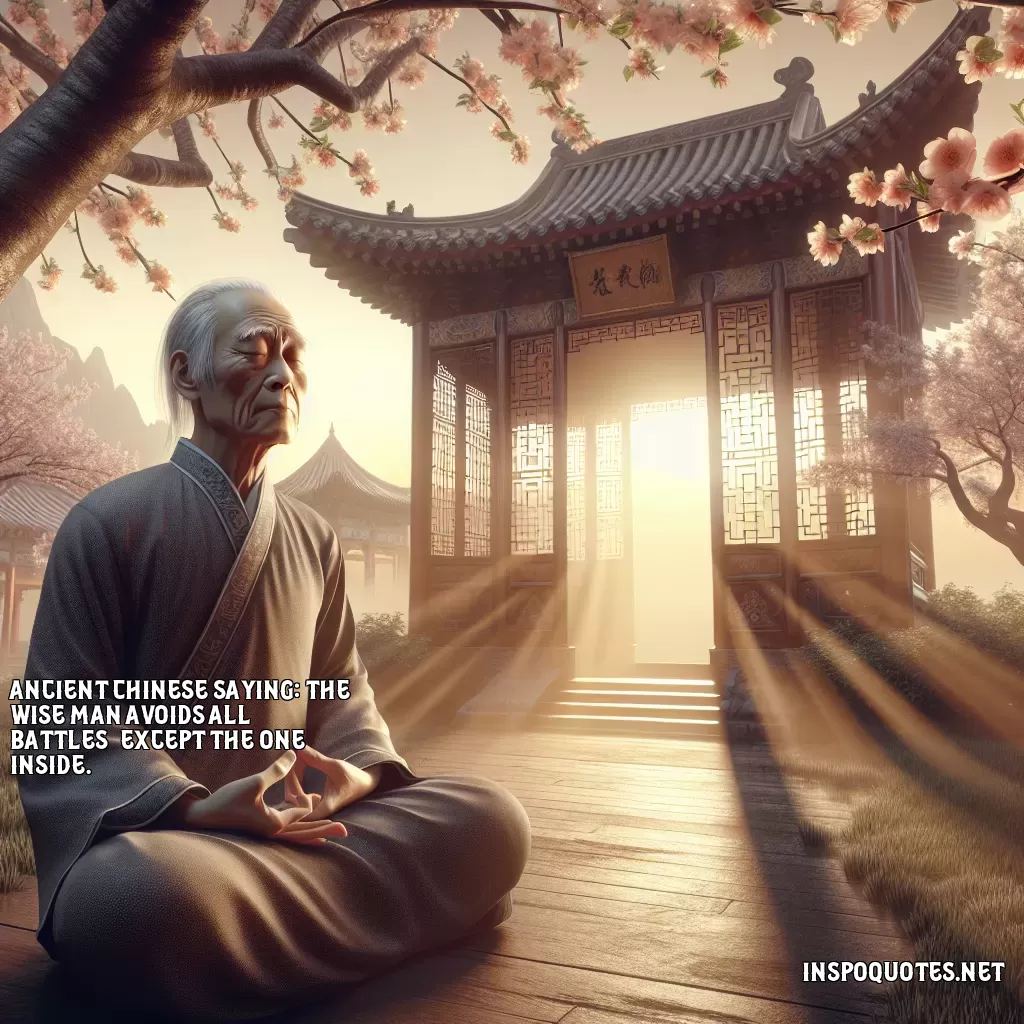
Ancient Chinese Saying: The wise man avoids all battles except the one inside.
Author: Laozi
👁️ 12 views

Ancient Chinese Saying: The wise man avoids all battles except the one inside.
👁️ 12 views
The saying "The wise man avoids all battles except the one inside" reflects a profound understanding of wisdom and internal peace, rooted in ancient Chinese philosophy. This metaphorical statement emphasizes a preference for internal reflection and self-mastery over engaging in external conflict. The "battles" mentioned symbolize conflicts or struggles. A wise person, according to this saying, does not seek out disputes or engage in unnecessary confrontations with others. This avoidance does not imply cowardice or passivity but rather the understanding that external battles often lead to destructive outcomes and distract from personal growth. The "one inside" refers to the internal struggle every individual faces—the personal challenges of self-control, overcoming one's flaws, and cultivating virtues. This internal battle is an ongoing, lifelong journey toward self-improvement and enlightenment. Engaging in this internal struggle helps an individual develop resilience, self-awareness, and inner peace. By focusing on conquering one's inner demons rather than external adversaries, a person develops wisdom and character. This aligns with Taoist and Confucian principles, which value harmony, self-discipline, and moral integrity. The wise person's energy is directed towards self-reflection, understanding their emotions, and achieving a balanced mind. Such focus enables them to act with clarity and compassion in their interactions with the world, influencing change from within rather than through forceful means. Thus, this ancient Chinese saying encourages prioritizing personal growth and introspection, ultimately leading to a more fulfilled and harmonious life.
Quote By: Laozi
Laozi, also known as Lao Tzu, was an ancient Chinese philosopher and writer, traditionally considered the founder of Daoism (Taoism) and attributed as the author of the "Dao De Jing" (Tao Te Ching), a foundational text of the philosophy. Believed to have lived in the 6th century BCE during the Zhou Dynasty, Laozi's teachings emphasize harmony with the Dao (Tao), natural simplicity, and the pursuit of wisdom through humility and non-action (wu wei). Revered as a sage, his influence extends beyond philosophy into spiritual and political thought throughout Chinese history and beyond.
Bio added on: 2025-02-13 13:50:25